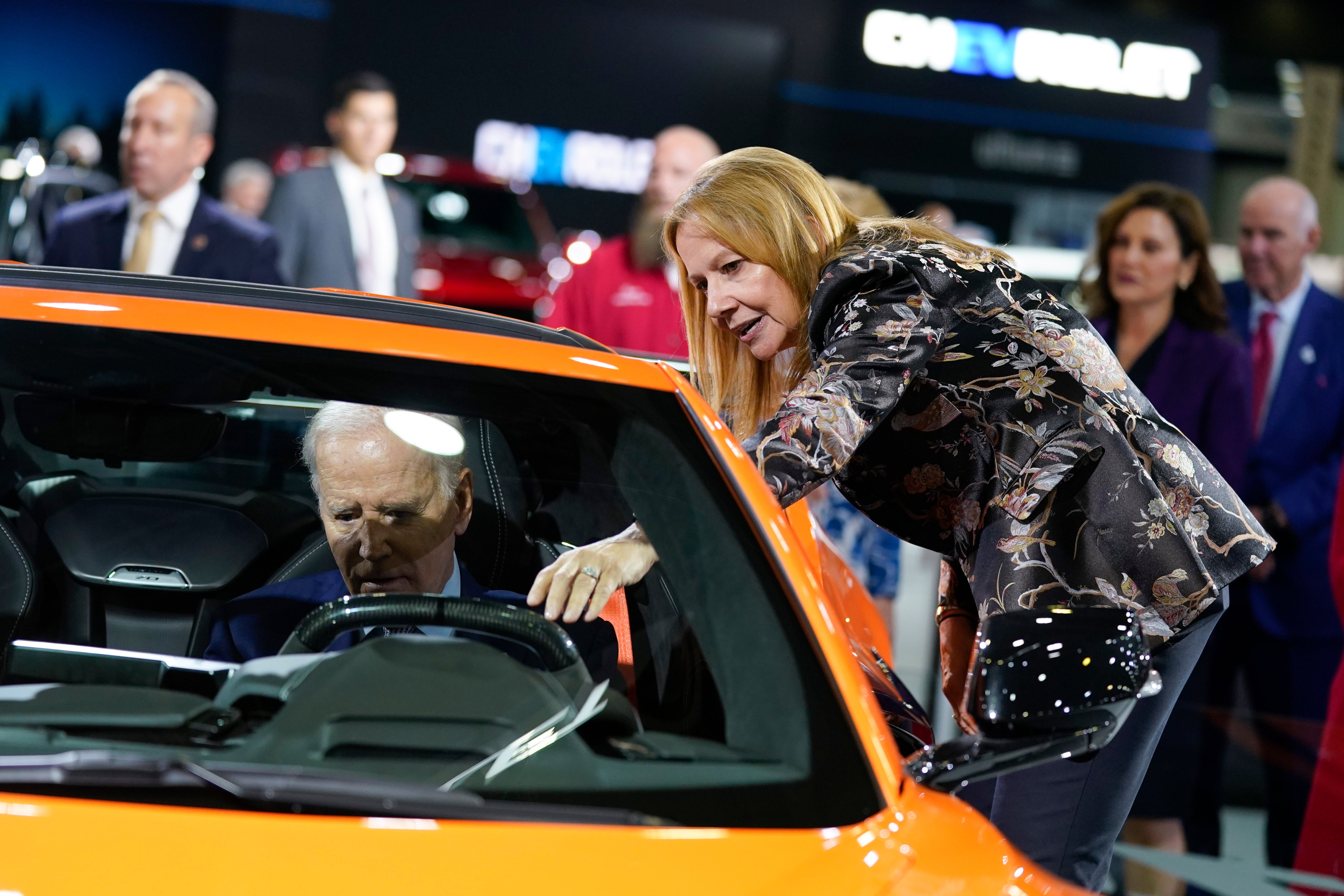General Motors CEO confronted over her own $29m salary amid UAW strike
Union argues wage rises haven’t matched company profits
General Motors CEO Mary Barra defended her $29m salary as nearly 150,000 workers represented by the United Auto Workers began a historic strike on Friday.
Ms Barra, who is the highest-paid CEO among the Detroit “Big Three” automakers whose workers are striking, told CNN her salary was justified because it is tied to company performance, just as workers’ own profit-sharing agreements are.
“My compensation, 92 per cent of it is based on the performance of the company,” she said on Friday. “One of the strong aspects of the way our compensation for our represented employees is designed is not only are we putting a 20 per cent [wage] increase on the table. We have profit sharing. When the company does well, everybody does well.”
The executive’s own salary has risen 34 per cent over the last four years.
About 146,000 workers at GM, Ford, and Stellantis-owned Chrysler began a series of staggered strikes on Friday, after negotiators passed a 14 September deadline to reach a deal between the UAW and the Big Three.
In August, UAW members voted to strike if an agreement couldn’t be reached.
The massive auto union argues that worker wages haven’t kept up with company profits and executive compensation.
“For the last 40 years, the billionaire class has been taking everything and leaving everybody else to fight for the scraps,” UAW president Shawn Fain said in a speech last week. “We are not the problem. Corporate greed is the problem.”

After the 2008 financial crisis, Detroit automakers underwent major restructuring as part of the federal financial bailout.
Part of that restructuring included major changes to working conditions including a two-tiered, tenure-based pay schedule, an increase in temporary workers, and the end of defined-benefit pensions — all issues the union is hoping to tackle with its set of demands.
“Part of what’s motivating [wage increases] is an interest in the workers sharing in the success that the company has been experiencing, and share in it in a way that seems commensurate with the way that the corporate leadership has shared in that success,” Sharon Block, executive director of Harvard Law School’s Center for Labor and a Just Economy, told Vox. “When you think about it as an increase that represents a fair share of profits from three very profitable companies of late, it may look different.”
The UAW has asked for a 36 per cent wage increase over four years, in part to match similar increases in CEO compensation, and has also pushed for a 32-hour work week.
Ford and GM have offered a 20 per cent raise, while Stellantis has offered 17.5 per cent so far.
Join our commenting forum
Join thought-provoking conversations, follow other Independent readers and see their replies
Comments


Bookmark popover
Removed from bookmarks